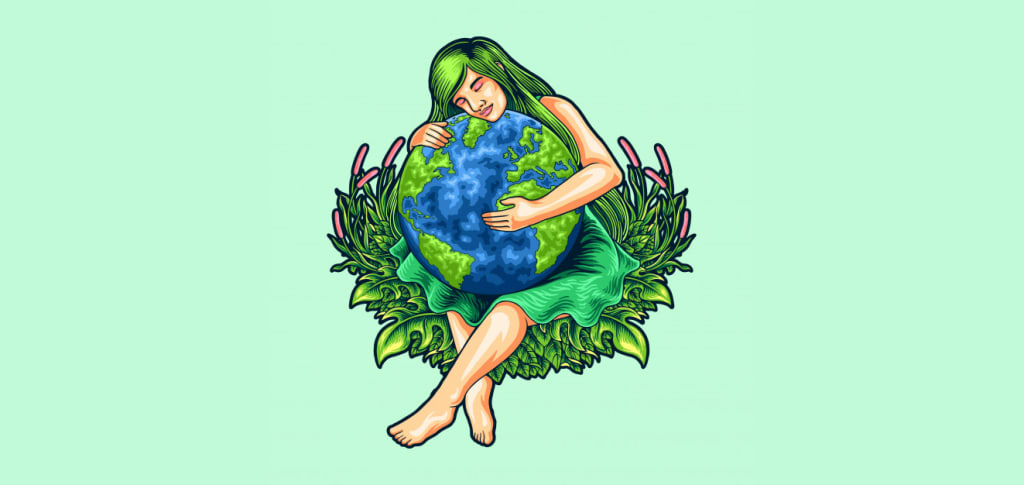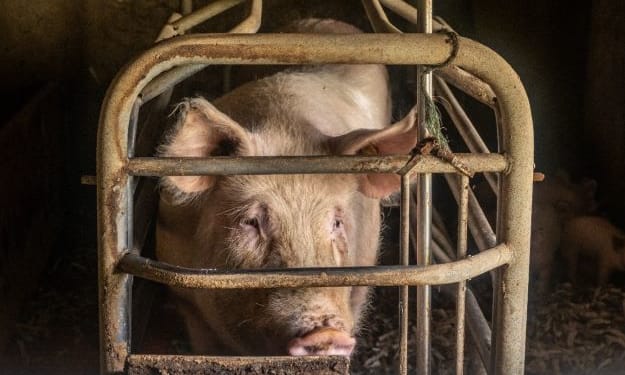Why Do Terrible Things Exist in Our World? A Path to a Harmonious Earth
Exploring the Root Causes and Charting a Course Towards a Harmonious Earth

Every day, the relentless barrage of negative news and events burdens our collective psyche. From wars and natural disasters to systemic injustice and poverty, the world often seems engulfed in a never-ending cycle of suffering. It’s a reality that disturbs many, pushing us to question why such terrible things exist and whether humanity can ever transcend this state. The belief that humans have the inherent potential to be good and that, with morally correct governance, we can create a better world, is a powerful sentiment. It suggests that we don’t have to accept suffering as a permanent fixture of life; instead, we can envision and build a harmonious Earth where there is enough for everyone.
The Origins of Our Current Reality
To understand why terrible things exist, we must first examine the historical and systemic roots of our current reality. Human societies have been shaped by centuries of conflict, competition, and inequality. Ancient feuds, territorial disputes, and the struggle for resources have left an indelible mark on our world, establishing systems that perpetuate division and suffering. Many of our current institutions, from economic systems to governance structures, are remnants of these old paradigms, created by people long gone but still influencing our lives today.
The Power of Governance
Governance plays a crucial role in shaping societal values and behaviors. Morally correct governance—characterized by transparency, justice, and empathy—has the potential to transform societies. Good governance ensures that resources are distributed fairly, rights are protected, and every individual has the opportunity to thrive. In contrast, corrupt or ineffective governance exacerbates inequalities, fuels conflict, and perpetuates suffering.
Several contemporary examples illustrate the impact of governance on societal well-being. Countries with high levels of corruption often experience greater poverty and social unrest, while those with transparent and accountable governments tend to enjoy higher levels of peace and prosperity. The success stories of nations like Denmark and New Zealand, which consistently rank high in governance and human development indices, demonstrate that ethical leadership and inclusive policies can create a more equitable and harmonious society.
The Role of Human Nature
While governance is crucial, it is ultimately the collective actions of individuals that drive societal change. Humans are complex beings, capable of both immense kindness and profound cruelty. Understanding and harnessing the positive aspects of human nature is key to creating a better world. Empathy, cooperation, and altruism are not just ideals but are ingrained in our biology. Studies in psychology and neuroscience show that humans are wired for empathy and cooperation, traits that have enabled us to build communities and advance as a species.
However, these positive traits are often overshadowed by fear, greed, and the pursuit of power. Social and economic systems that reward competition over cooperation and material wealth over communal well-being exacerbate these negative tendencies. To create a harmonious Earth, we must foster environments that nurture our better angels and diminish the influence of our darker instincts.
Creating a New Reality
The belief that we do not have to accept suffering as an inevitable part of life is a powerful motivator for change. Creating a new reality requires a multi-faceted approach:
Education and Awareness: Knowledge is power. Educating individuals about the interconnectedness of global issues and the impact of their actions can inspire more responsible behavior. Awareness campaigns and educational reforms that emphasize empathy, environmental stewardship, and global citizenship can shift societal norms.
Economic Reform: Addressing economic inequalities is crucial for creating a more just world. Implementing fairer economic policies, promoting sustainable development, and ensuring that basic needs are met for all can reduce the root causes of conflict and suffering.
Community Building: Strengthening community bonds and fostering local initiatives can create resilient and supportive networks. Community-driven projects, local governance, and grassroots movements can empower individuals and create a sense of collective responsibility.
Technological Innovation: Leveraging technology for social good can address many of the world’s problems. Innovations in renewable energy, sustainable agriculture, and healthcare can improve quality of life and reduce resource-based conflicts.
Moral Leadership: Leaders who prioritize ethical considerations and the common good over personal gain can inspire positive change. Supporting and electing leaders with integrity and vision is essential for steering society towards a more harmonious future.
The Vision of a Harmonious Earth
Imagining a harmonious Earth is not just a utopian dream; it is a feasible goal. It requires a collective effort to challenge and change the systems that perpetuate suffering. By fostering empathy, ensuring fair governance, and promoting sustainable practices, we can create a world where there is enough for everyone, and where war and suffering are relics of the past.
In conclusion, the existence of terrible things in our world is not an unchangeable reality. It is a consequence of historical legacies and human choices. By acknowledging our potential for goodness and implementing morally correct governance, we can pave the way for a better future. We have created the systems that govern our lives, and we have the power to create new ones that lead to a harmonious Earth. The journey towards this vision requires courage, commitment, and a belief in our collective ability to build a better world.
About the Creator
Demi Wright
My care, curiosity, and love for the world have inspired me to learn and share insights that can make a positive impact. I'm on a mission to contribute towards making the world a better place. Join me and let's make a difference together!
Enjoyed the story? Support the Creator.
Subscribe for free to receive all their stories in your feed. You could also pledge your support or give them a one-off tip, letting them know you appreciate their work.






Comments
There are no comments for this story
Be the first to respond and start the conversation.